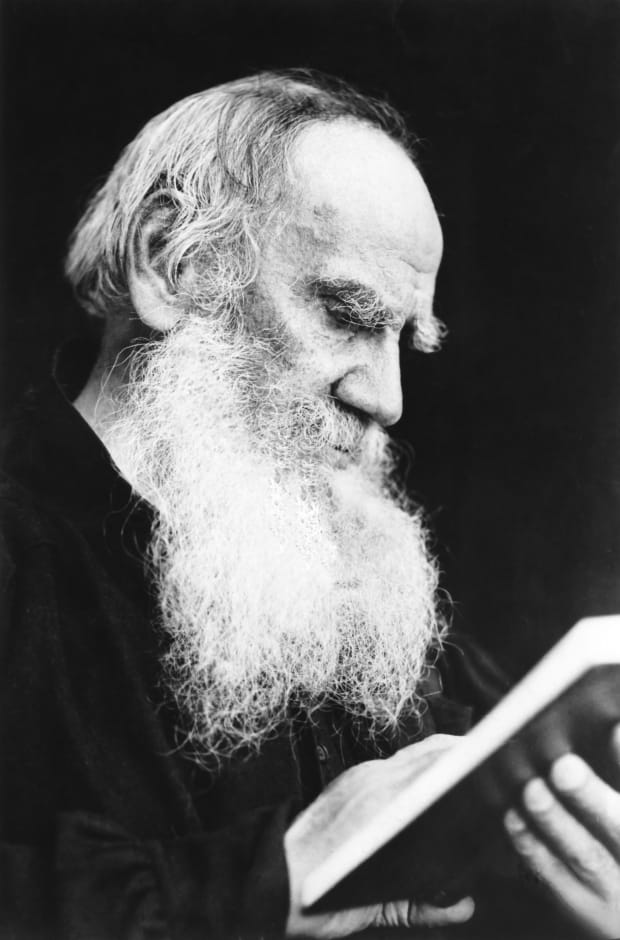Leo Tolstoy Archive
Written: 1912
Source: The Forged Coupon: And Other Stories, by Leo Tolstoy, 1912, Translated from the Russian by Herman Bernstein, published by Ogilvie Publishing Company, 57 Rose Street, New York, produced for Gutenberg.org by Judith Boss and David Widger, 2006.
Transcription/Markup: Andy Carloff
Online Source: RevoltLib.com; 2021

In the meanwhile the horses, the gray ones, had all been disposed of; Mashka was sold to the gypsies for eighteen rubles; Dapple-gray was exchanged for another horse, and passed over to another peasant who lived forty miles away from the estate; and Beauty died on the way. The man who conducted the whole affair was—Ivan Mironov. He had been employed on the estate, and knew all the whereabouts of Peter Nikolaevich. He wanted to get back the money he had lost, and stole the horses for that reason.
After his misfortune with the forged coupon, Ivan Mironov took to drink; and all he possessed would have gone on drink if it had not been for his wife, who locked up his clothes, the horses’ collars, and all the rest of what he would otherwise have squandered in public-houses. In his drunken state Ivan Mironov was continually thinking, not only of the man who had wronged him, but of all the rich people who live on robbing the poor. One day he had a drink with some peasants from the suburbs of Podolsk, and was walking home together with them. On the way the peasants, who were completely drunk, told him they had stolen a horse from a peasant’s cottage. Ivan Mironov got angry, and began to abuse the horse-thieves.
“What a shame!” he said. “A horse is like a brother to the peasant. And you robbed him of it? It is a great sin, I tell you. If you go in for stealing horses, steal them from the landowners. They are worse than dogs, and deserve anything.”
The talk went on, and the peasants from Podolsk told him that it required a great deal of cunning to steal a horse on an estate.
“You must know all the ins and outs of the place, and must have somebody on the spot to help you.”
Then it occurred to Ivan Mironov that he knew a landowner—Sventizky; he had worked on his estate, and Sventizky, when paying him off, had deducted one ruble and a half for a broken tool. He remembered well the gray horses which he used to drive at Sventizky’s.
Ivan Mironov called on Peter Nikolaevich pretending to ask for employment, but really in order to get the information he wanted. He took precautions to make sure that the watchman was absent, and that the horses were standing in their boxes in the stable. He brought the thieves to the place, and helped them to carry off the three horses.
They divided their gains, and Ivan Mironov returned to his wife with five rubles in his pocket. He had nothing to do at home, having no horse to work in the field, and therefore continued to steal horses in company with professional horse-thieves and gypsies.